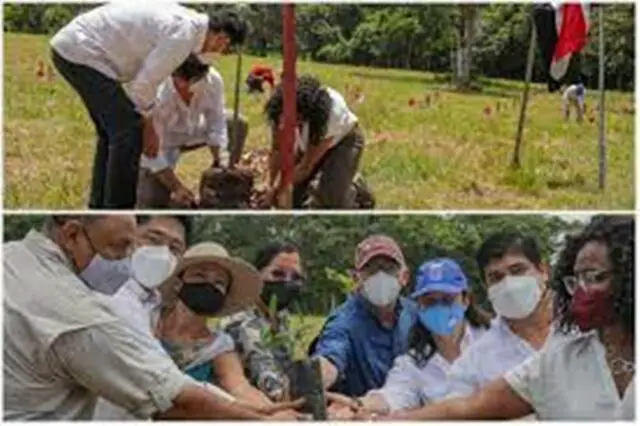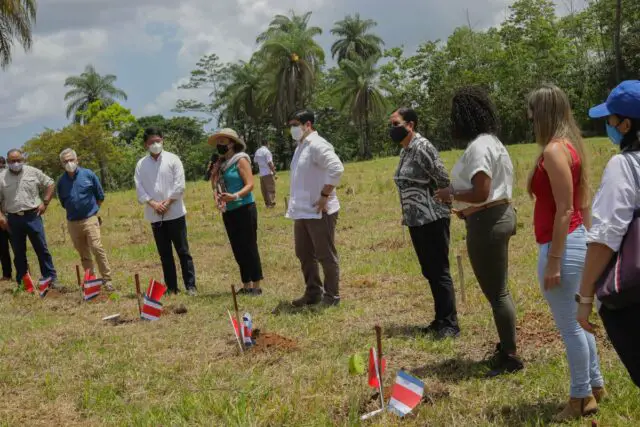President Carlos Alvarado and Beijing Ambassador Tang Heng planted the first tree of the Friendship Forest between China and Costa Rica this past week, as part of the “Footprint of the Future” initiative.
Located on the grounds of the Los Chiles Professional Technical College, in the province of Alajuela, the forest will feature an innovative circular design, inspired by Chinese culture, as well as the initial donation of two thousand trees by the Asian giant to reforest the northern part of Costa Rica. Likewise, organizations led by women will maintain the planted trees for five years to guarantee their survival.

A more sustainable, inclusive and resilient future
“We thank the People’s Republic of China for joining the “Footprint of the Future” initiative and thus joining the efforts of our country to forge the foundations of a more sustainable, inclusive and resilient future for all people and the planet,” Alvarado highlighted.
Along with the president, the vice president Epsy Campbell, manager of the initiative; the ministers of Public Education Giselle Cruz and of Environment and Energy (Minae) Andrea Meza Murillo; and the mayor of Los Chiles, Jacobo Guillén. Also, the director of the National Fund for Forest Financing, Jorge Mario Rodríguez; and the assistant resident representative of the United Nations Program (UNDP) in Costa Rica, Kryssia Brade.

During the event they reported that in a dozen circumferences of the new Friendship Forest between China and Costa Rica there will be species such as ceiba, coffee, medicinal plants, yellow bark, savanna oak, jacarandas, laurel, almond and guanacaste, among others, which will be offered biodiversity, ecosystem resilience and high educational value.
Closer to meeting the goal
The Minae highlighted that China’s contribution is getting closer and closer to meeting the goal of planting 200 thousand endemic, floral, fruit and timber trees, in nine cantons of the northern zone, with a view to the celebration of the Bicentennial of Independence this year. Well, there are still 76 thousand 708 plants to reach that amount. In turn, it contributes to the national goal of increasing forest cover to 60 percent by 2030.
Leaving an indelible sustainable mark
The Tica vice president said that her initiative was born with the objective of leaving an indelible sustainable mark and with the need to achieve an inclusive economic recovery after the impact of the Covid-19 Pandemic.
Unlike other reforestation programs, Campbell praised that “Footprint of the Future” excels in its efforts to seek the survival of all planted trees, by maintaining them for five years, a task carried out mainly by organizations led by women.
